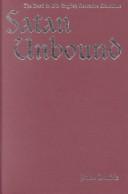| Listing 1 - 10 of 43 | << page >> |
Sort by
|
Book
Year: 1969 Publisher: Hildesheim : Olms,
Abstract | Keywords | Export | Availability | Bookmark
 Loading...
Loading...Choose an application
- Reference Manager
- EndNote
- RefWorks (Direct export to RefWorks)
Altenglisch. --- Legende. --- Geschichte 900-1100. --- Altenglisch. --- Großbritannien.
Book
ISBN: 9783831648726 Year: 2020 Publisher: München : utzverlag,
Abstract | Keywords | Export | Availability | Bookmark
 Loading...
Loading...Choose an application
- Reference Manager
- EndNote
- RefWorks (Direct export to RefWorks)
Altenglisch. --- Transitives Verb. --- Verbzusatz.
Book
ISBN: 1487583559 Year: 2019 Publisher: Toronto : University of Toronto Press,
Abstract | Keywords | Export | Availability | Bookmark
 Loading...
Loading...Choose an application
- Reference Manager
- EndNote
- RefWorks (Direct export to RefWorks)
THIS book is intended for the beginning student in Germanic Philology and, in particular, for students of Old English.
English language --- Phonology. --- Indogermanisch. --- Germanisch. --- Altenglisch.
Book
Year: 1968 Publisher: Esslingen : Langer,
Abstract | Keywords | Export | Availability | Bookmark
 Loading...
Loading...Choose an application
- Reference Manager
- EndNote
- RefWorks (Direct export to RefWorks)
Ableitung (Linguistik). --- Altenglisch. --- English language --- English language --- Nullmorphem. --- Substantiv. --- Old English --- Word formation. --- Word formation --- Altenglisch.
Book
Year: 1882 Publisher: Halle : Niemeyer,
Abstract | Keywords | Export | Availability | Bookmark
 Loading...
Loading...Choose an application
- Reference Manager
- EndNote
- RefWorks (Direct export to RefWorks)
Altenglisch. --- English language --- English language --- Grammatik. --- Grammar --- Old English --- Grammar. --- Altenglisch.

ISBN: 1282033778 9786612033773 1442679581 9781442679580 9781282033771 0802048390 0802083692 9780802048394 9780802083692 Year: 2001 Publisher: Toronto
Abstract | Keywords | Export | Availability | Bookmark
 Loading...
Loading...Choose an application
- Reference Manager
- EndNote
- RefWorks (Direct export to RefWorks)
"The devil is perhaps the single most recurring character in Old English narrative literature, and yet his function in the highly symbolic narrative world of hagiography has never been systematically studied. Certain inconsistencies characteristically accompany the nebulous devil in early medieval narrative accounts - he is simultaneously bound in hell and yet roaming the earth; he is here identified as the chief of demons, and there taken as a collective term for the totality of demons; he is at one point a medical parasite and at another a psychological principle." "Satan Unbound argues that these open-ended registers in the conceptualisation of the devil allowed Anglo-Saxon writes a certain latitude for creative mythography, even within the orthodox tradition. The narrative tensions resulting from the devil's protean character opaquely reflect deep-rooted anxieties in the early medieval understanding of the territorial distribution of the moral cosmos, the contested spiritual provinces of the demonic and the divine. The ubiquitous conflict between saint and demon constitutes an ontological study of the boundaries between the holy and the unholy, rather than a psychological study of temptation and sin."--Jacket
Devil in literature. --- English literature --- History and criticism. --- Altenglisch.
Book
ISBN: 3484400102 9783484400108 3110928175 Year: 1959 Publisher: Tübingen, [Germany] : Max Niemeyer Verlag,
Abstract | Keywords | Export | Availability | Bookmark
 Loading...
Loading...Choose an application
- Reference Manager
- EndNote
- RefWorks (Direct export to RefWorks)
Altenglisch. --- English language --- Grammatik. --- Grammar --- Old English --- Grammar. --- Germanic languages
Book
ISBN: 1872883850 9781872883854 Year: 2005 Publisher: Loughborough : Heart of Albion,
Abstract | Keywords | Export | Availability | Bookmark
 Loading...
Loading...Choose an application
- Reference Manager
- EndNote
- RefWorks (Direct export to RefWorks)
Altenglisch. --- English language --- English language --- English language --- English. --- Old English.
Book
Year: 1891 Publisher: Oxford : Clarendon press,
Abstract | Keywords | Export | Availability | Bookmark
 Loading...
Loading...Choose an application
- Reference Manager
- EndNote
- RefWorks (Direct export to RefWorks)
Altenglisch. --- English language --- English language --- Phonologie. --- Old English --- Phonology. --- Phonology
Book
ISBN: 9780674072633 0674072634 Year: 2013 Publisher: Cambridge (Mass.) : Harvard university press,
Abstract | Keywords | Export | Availability | Bookmark
 Loading...
Loading...Choose an application
- Reference Manager
- EndNote
- RefWorks (Direct export to RefWorks)
The Old English poems attributed to Cynewulf, who flourished some time between the eighth and tenth centuries, are unusual because most vernacular poems in this period are anonymous. Other than the name, we have no biographical details of Cynewulf, not even the most basic facts of where or when he lived. Yet the poems themselves attest to a powerfully inventive imagination, deeply learned in Christian doctrine and traditional verse-craft. Runic letters spelling out the name Cynewulf appear in four poems: Christ II (or The Ascension), Juliana, The Fates of the Apostles, and Elene. To these a fifth can be added, Guthlac B, because of similarities in style and vocabulary, but any signature (if one ever existed) has been lost because its ending lines are missing. What characterizes Cynewulf's poetry? He reveals an expert control of structure as shown from the changes he makes to his Latin sources. He has a flair for extended similes and dramatic dialogue. In Christ II, for example, the major events in Christ's life are portrayed as vigorous leaps. In Juliana the force of the saint's rhetoric utterly confounds a demon sent to torment her. - Publisher.
Altenglisch. --- Christian poetry, English (Old) --- Christian poetry, English (Old). --- Lyrik.
| Listing 1 - 10 of 43 | << page >> |
Sort by
|

 Search
Search Feedback
Feedback About
About Help
Help News
News